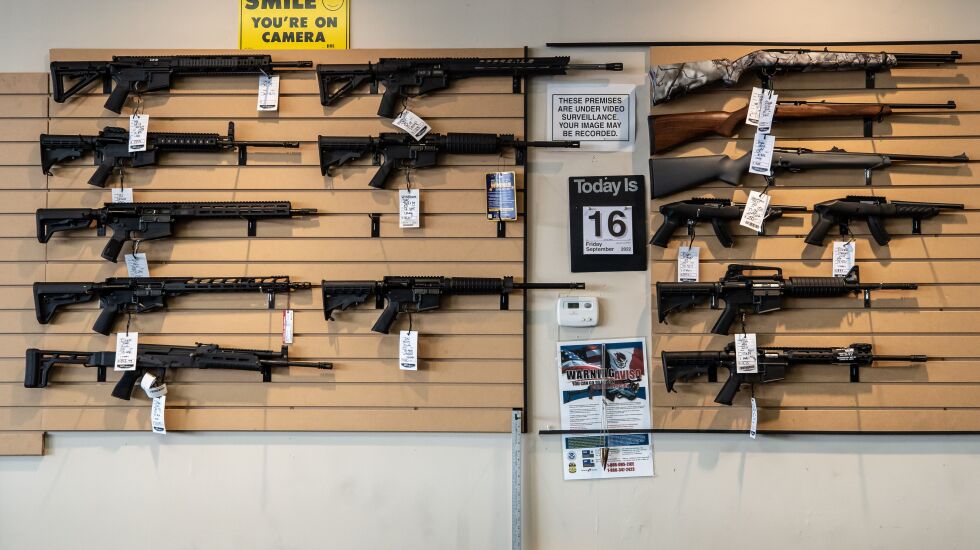
The federal appeals court in Chicago has scheduled a hearing for late June on two cases that challenge the state’s ban on assault-style weapons.
The 7th U.S. Circuit Court of Appeals has consolidated the cases and will hear arguments on June 29.
The appeals court has refused to stop the law from being enforced while it considers the cases. But that could change because opponents of the law have asked for an emergency injunction from U.S. Supreme Court Justice Amy Coney Barrett.
The hearing will come six months after Gov. J.B. Pritzker signed the law banning the sale of assault-style weapons and capping the purchase of magazines at 10 rounds for long guns and 15 for handguns.
The law was passed after a man used an AR-15-style semiautomatic rifle to kill seven people and wound more than 48 others at the Highland Park Fourth of July parade.
The first federal lawsuit challenging the law was filed in the U.S. District Court in Chicago by Robert Bevis, a gun shop owner Naperville. He argued that the law — and a similar Naperville ordinance — was unconstitutional and was hurting his business, Law Weapons & Supply.
But U.S. District Judge Virginia Kendall found the ban is “constitutionally sound.” She wrote in her ruling, “Because assault weapons are particularly dangerous weapons … their regulation accords with history and tradition.”
Bevis took his case to the appeals court, which also refused to issue an injunction.
The second federal lawsuit was filed in southern Illinois. Unlike in Chicago, U.S. District Judge Stephen McGlynn sided with the challengers and temporarily blocked enforcement of the ban, saying the law not only restricts the right to defend oneself but, in some cases, “completely obliterated that right.”
In a 29-page ruling, McGlynn questioned whether “the senseless crimes of a relative few” can “be so despicable to justify the infringement of the constitutional rights of law-abiding individuals in hopes that such crimes will then abate or, at least, not be as horrific?”
The state of Illinois took the case to the appeals court in Chicago, where judges lifted the injunction and allowed the ban to once again be enforced.
Justice Barrett, who handles emergency appeals from the Midwest, has been asked to reimpose an injunction against the ban while the cases wind their way through the courts.







